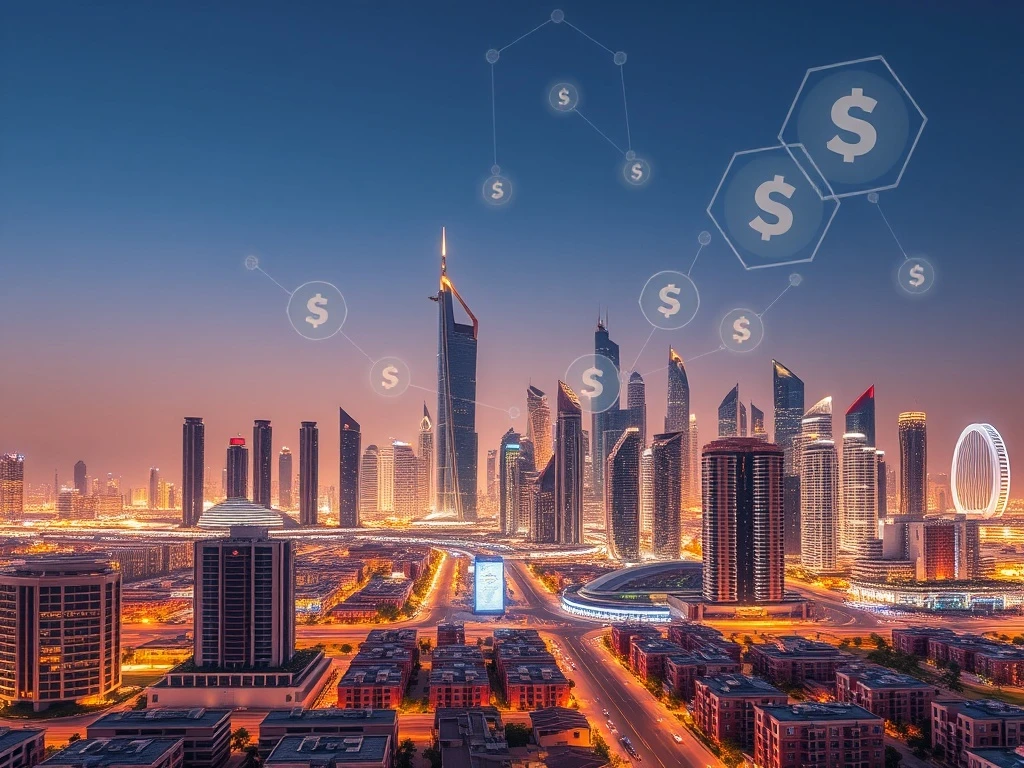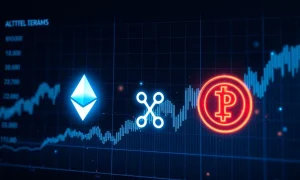The United Arab Emirates is revolutionizing property investment through groundbreaking blockchain real estate integration. RAK Properties, a leading Ras Al Khaimah developer, now accepts cryptocurrency payments and implements smart contracts, positioning the UAE as the world’s most advanced blockchain real estate market. This strategic move attracts global digital investors while ensuring regulatory compliance and transaction transparency.
Blockchain Real Estate Payments Revolution
RAK Properties now accepts major cryptocurrencies including Bitcoin, Ethereum, and Tether for property transactions. Through partnership with ADGM-regulated Hubpay, digital assets convert instantly to UAE dirhams. This system protects against crypto volatility while complying with financial regulations. Consequently, the company accesses a growing demographic of crypto-savvy international investors.
Smart Contracts Enhance Transparency
Blockchain technology enables smart contracts that automate ownership transfers and reduce human error. These contracts create immutable transaction records that build investor trust. Additionally, Dubai’s REES initiative tokenizes property ownership enabling fractional shares. This blockchain real estate approach aligns with UAE’s 2025 blockchain goals and projected $4 trillion tokenized market by 2035.
Financial Performance and Tax Advantages
RAK Properties demonstrates strong financial results with 39% profit growth in 2024. The UAE’s 0% tax regime on capital gains further enhances investment appeal. Moreover, regulatory clarity positions the country as a stable blockchain real estate hub. The company’s appointment of Arqaam Securities as liquidity provider ensures market depth and accessibility.
Tokenization Unlocks Property Liquidity
Traditional real estate investments face liquidity challenges that blockchain solves through tokenization. Dubai Land Department’s government-backed program allows fractional property ownership starting at AED 2,000. This democratizes access to high-value properties and creates new investment opportunities. RAK Properties’ crypto payment system supports this growing tokenization trend.
UAE’s Strategic Blockchain Vision
The UAE aims to process all property transactions via blockchain by 2025. This national strategy positions the country as a global model for blockchain real estate integration. Ras Al Khaimah’s Vision 2030 prioritizes economic diversification through technological innovation. Consequently, the emirate attracts significant foreign investment in its real estate sector.
Future of Blockchain Real Estate Investment
Blockchain technology transforms real estate by lowering entry barriers and enhancing transparency. Investors benefit from improved liquidity and reduced transaction costs. The UAE’s regulatory framework provides stability while encouraging innovation. RAK Properties’ initiatives demonstrate how traditional sectors can successfully integrate blockchain solutions.
Frequently Asked Questions
What cryptocurrencies does RAK Properties accept?
RAK Properties accepts Bitcoin (BTC), Ethereum (ETH), and Tether (USDT) for property transactions through its partnership with Hubpay.
How does blockchain improve real estate transactions?
Blockchain enables smart contracts that automate processes, create immutable records, and reduce intermediaries, resulting in faster, more transparent transactions.
What are the tax benefits of UAE real estate investment?
The UAE offers 0% tax on capital gains and clear cryptocurrency regulations, making it attractive for international investors seeking both innovation and stability.
How does tokenization work in real estate?
Tokenization divides property ownership into digital shares that can be traded on blockchain platforms, allowing fractional investment and improved liquidity.
Is cryptocurrency volatility a risk for property purchases?
RAK Properties mitigates volatility risk by instantly converting cryptocurrencies to UAE dirhams through regulated financial partners.
What is the UAE’s timeline for blockchain adoption?
The UAE aims to process all property transactions via blockchain by 2025, with tokenized real estate projected to represent 7% of the market by 2033.








